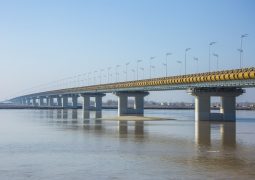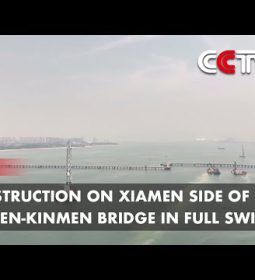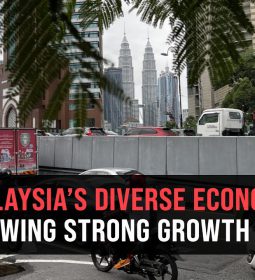China-backed dam threatens Indigenous people in the Philippines
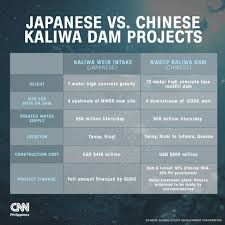
Proposed $800m project will involve construction of 143-metre dam that will flood thousands of acres of Indigenous land.
by Nick Aspinwal
In April 2019, a Philippine company signed a contract with the state-owned China Energy Engineering Co Ltd, to build a $800m dam in Pulangi despite Indigenous people’s objections [Nick Aspinwall/Al Jazeera]
Kibawe, Philippines – The Pulangi River flows through the remote Pantaron range of central Mindanao, where the Manobo Indigenous people move between their small riverside encampments by boat; their livelihood depends on growing food and medicinal plants in mountains they consider sacred.
But an $800m China-backed hydropower dam project is set to drastically change this landscape in the southern Philippines, displacing dozens of Indigenous communities who call this tranquil river basin in Bukidnon province home.
Local Indigenous leaders do not want to move. But they say their voices have been muzzled by the militarisation of Mindanao, which has made communities fearful of organising to protect their ancestral lands.
The proposed 250-megawatt South Pulangi Hydroelectric Power Plant project, located about three hours north of Davao City, the hometown of President Rodrigo Duterte, will mean the construction of a 143-metre dam and a reservoir that will flood about 2,833 hectares (7,000 acres) of Indigenous land in four towns, according to documents obtained by Al Jazeera.
According to a 2018 project plan released by Pulangi Hydro Power Corporation, or PHPC, construction will affect the residents of 20 communities.
There are 30,000 people living in the area, according to 2015 census data. Not all will be subject to relocation but residents in the lush mountain communities have not received exact figures of affected households.
Those who will be directly affected say no one has asked for their permission to proceed with the project as required by law.
“They did not follow the proper legal process,” said Nilo Cabungcal, vice chairman of the Manobo Pulangihon Tribal Council and a member of the Save Pulangi Alliance. “There is no consent.”
$800m contract
PHPC president and CEO Josue Lapitan signed the $800m contract agreement with Dong Bin, chairman of China Energy Engineering Co Ltd in April 2019, on the sidelines of the 2nd Belt and Road Forum in Beijing, which Duterte attended.
The project “aims to improve power supply reliability and resilience” the country’s Department of Trade and Industry in a statement.
The deal is the latest in a series of connections between Chinese leader Xi Jinping’s Belt and Road Initiative and the Duterte administration’s Build, Build, Build infrastructure programme.
But the two governments have not made the financing details public, said Neri Colmenares, a former congressman and lawyer who had questioned loan agreements with China, including the Kaliwa dam project.
An estimated 30,000 people who live along the Pulangi River could be affected by the project [Nick Aspinwall/Al Jazeera]
The contracts sparked concerns over high interest rates that could give China control over crucial Philippine assets – including the ancestral lands of Indigenous people – should the country fail to repay its loans.
Colmenares has asked the Supreme Court to order the public release of the loan details.
Indigenous residents living on the Kaliwa and Chico sites have also said they did not give free, prior and informed consent before contract agreements were signed.
‘Fear of militarisation’
People living in South Pulangi, however, have seen their concerns silenced by martial law on Mindanao.
Environmental groups tracking the project are being harassed by the government, according to Leon Dulce, chairman of the Manila-based environmental network Kalikasan People’s Network for the Environment, also known as Kalikasan.
Dulce said environment watchdogs in Bukidnon had been targeted by “full-scale militarisation”.
Community activists say many of Manobo tribe members fear the military and cannot complain about their situation to the government [Nick Aspinwall/Al Jazeera]
The Davao-based Panalipdan (Defend) Southern Mindanao regional alliance said martial law had prevented campaigners from gathering information and informing residents of the project’s potential impact.
But the armed forces are expected to maintain an extensive presence on the island, which remains one of the world’s deadliest places for environmental defenders. Duterte’s “state of emergency” declaration is also still in place.
Because of his efforts to stop the Pulangi dam project, Cabungcal, the Manobo leader of Save Pulangi Alliance, said he has received numerous text messages urging him to drop his opposition. On May 17 last year, a gun was fired at his home. He believes it was a “warning shot”.
Aclan, priest for a Philippine-based group, told Al Jazeera many communities near Pulangi River had been ‘militarised’ [Nick Aspinwall/Al Jazeera]
Davino Padua Aclan, priest at Iglesia Filipina Independiente in Kibawe, one of the four affected municipalities, said fear of militarisation had kept residents from speaking out.
“If the community reacts, it’s possible the military will come here,” Aclan said.
Chinese survey
The concerns of the local communities have not stopped investors from surveying the area.
Residents say that in July 2017, two years before the Pulangi contract was signed, they saw a Chinese man flying drones around the proposed dam site.
In December 2018, PHPC employees also visited the proposed dam site with drilling equipment, they said.
Residents approached them and asked them to leave, saying they did not have permission to survey the area.
Community leader Arlyn Sandong Balilihan has been fighting on behalf of the Manobo to stop the project [Nick Aspinwall/Al Jazeera]
Military units regularly guard infrastructure sites in the Philippines and confront Indigenous opponents to projects. In many cases, community leaders are arbitrarily imprisoned or killed.
On May 9, 2012, Margarito Cabal, an organizer for Save Pulangi Alliance, was killed. He had earlier told relatives he was under surveillance by the military, which had branded him a member of the New People’s Army (NPA), the armed wing of the country’s communist party, an act known as “red-tagging”.
Aclan sat near the river and motioned towards Cabungcal as he recalled Cabal’s story. “It can happen with this project, for the leaders for this,” he said.
Aclan said many members of his church have also been “red-tagged” by armed forces, which have been fighting NPA rebels for decades.
He said this was due to their work with farmers and Indigenous communities involved in land struggles.
“If you’re against the government, you are NPA,” he said. “You are subject to…” He held a finger to his throat and, mimicking a gun, brought his thumb down.
‘Illegal project’
The project’s “ground zero” – the site where the main dam structure will be built – is a short boat ride from Sanipon, one of several communities that will be submerged.
Community leaders and environmental advocates say the project failed to obtain necessary government clearance to start construction [Nick Aspinwall/ Al Jazeera]
The communities, only accessible by motorcycle, are home to Manobo people who farm the surrounding mountains and tend to horses and water buffalo. Children gather on the riverside, swimming and catching fish.
A dam access road is slated to cut through the forests, allowing heavy equipment to reach the site. The people of Sanipon will be forced to move.
Aclan stood on the riverbank and gestured to where the dam will rise alongside the mountains. “This project,” he said, “is illegal.”
Under Philippine law, the National Commission of Indigenous Peoples (NCIP), must conduct environmental and socioeconomic impact studies and obtain approval from affected Indigenous communities before a project can begin.
Despite signing a contract, PHPC and China Energy have not released figures on how many households will be relocated, or provided the required documents to residents.
The company leading the project, and China Energy have not released figures of how many households are set to be relocated [Nick Aspinwall/Al Jazeera]
Aclan accused the government of working in concert with investors and local government officials to avoid these requirements, a criticism often levelled by watchdogs, including the United Kingdom-based NGO Global Witness.
“They collaborated with each other in favour of this project without prior notice,” Aclan said.
‘Stolen land’
PHPC has agreed to pay landholders yearly compensation of 25,000 Philippine pesos ($489) per hectare (2.5 acres) for 25 years – a figure William Dakawan, a Manobo chairperson from Sanipon, insisted was not enough.
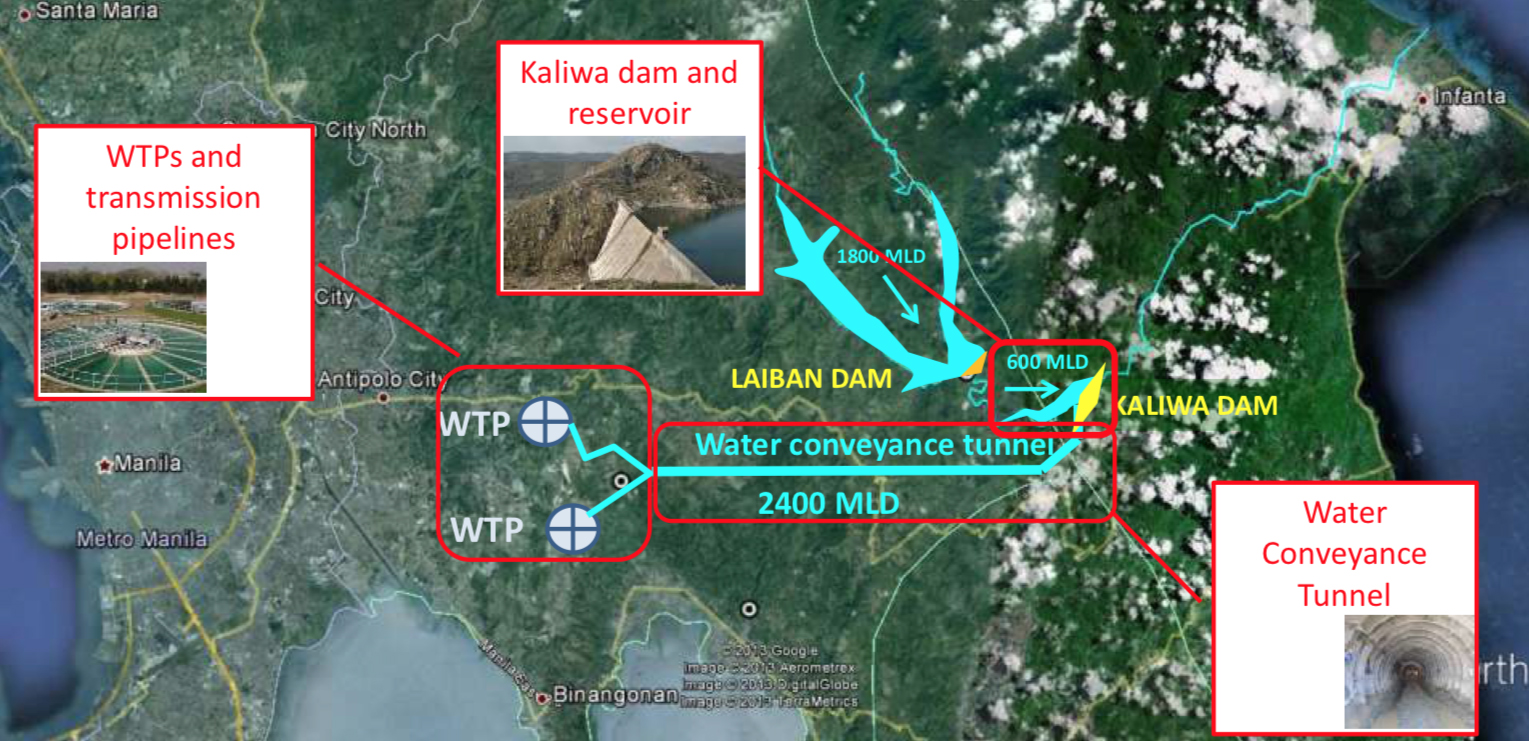
“We’re not anti-development,” Cabungcal said. “But they stepped on our rights. We are anti-development for this specific project.”
Arlyn Sandong Balilihan, a Manobo resident of nearby Natulongan, said the dam will submerge ancestral land that belonged to her family but was seized during the martial law rule of Ferdinand Marcos.
“My lolo [grandfather] was buried there,” she said. “If I have money, I will fight them.”
Many Manobo have lived along the riverbank of Pulangi for generations [Nick/Al Jazeera]
Balilihan says her community was approached by a PHPC representative in March with 1.35 million Philippine pesos ($26,420) in cash – an attempt to secure their approval for the project.
She and other tribal elders, including Cabungcal, decided to return the money.
Many village chiefs, however, signed documents approving the dam despite the objections from residents, Cabungcal said.
Lapitan, president of PHPC, did not respond to multiple requests for comment at two listed phone numbers and an email address.
China Energy, NCIP and DTI did not respond to requests for comment.
‘No action from government’
Cabungcal said he met Allen Capyuan, head of the agency for Indigenous peoples, in May and told him that PHPC had not followed proper legal process. So far, the meeting has not produced a resolution to their complaint, Cabungcal said.
Aclan is pessimistic that the Manobos’ voice will be heard, as the project is “crucial” to the Duterte administration.
Balilihan, a Manobo leader, knows speaking against the project carries personal danger. She has urged her children to move away for their safety. On her own, she said she is not afraid.
“It’s ok for me. I can protect myself,” she said. “I will offer my blood.”
- Previous Participants agree to respect arms embargo on Libya in Berlin summit
- Next Beware the wrath of Malaysians if you dare insult our ‘nasi lemak’








